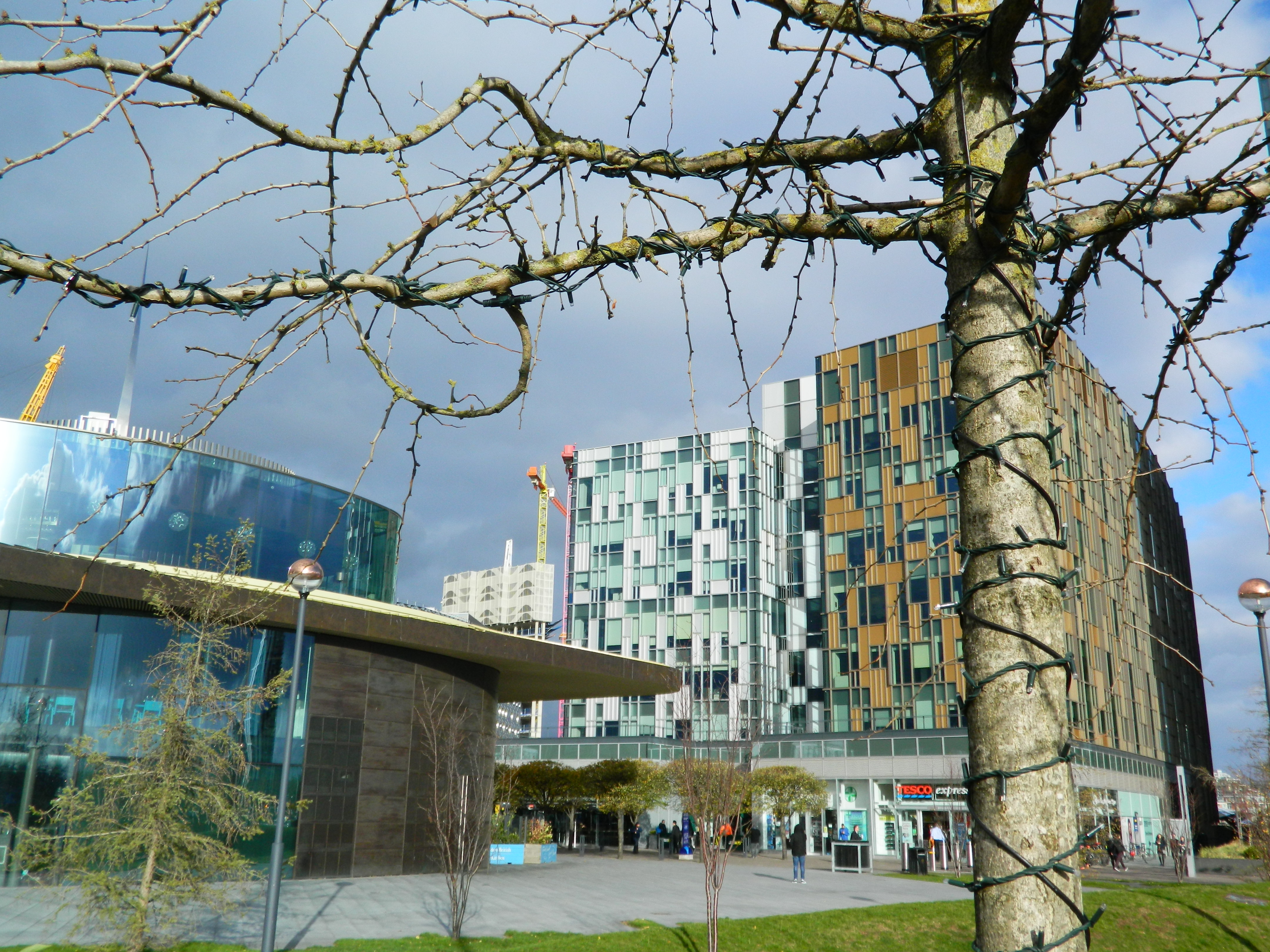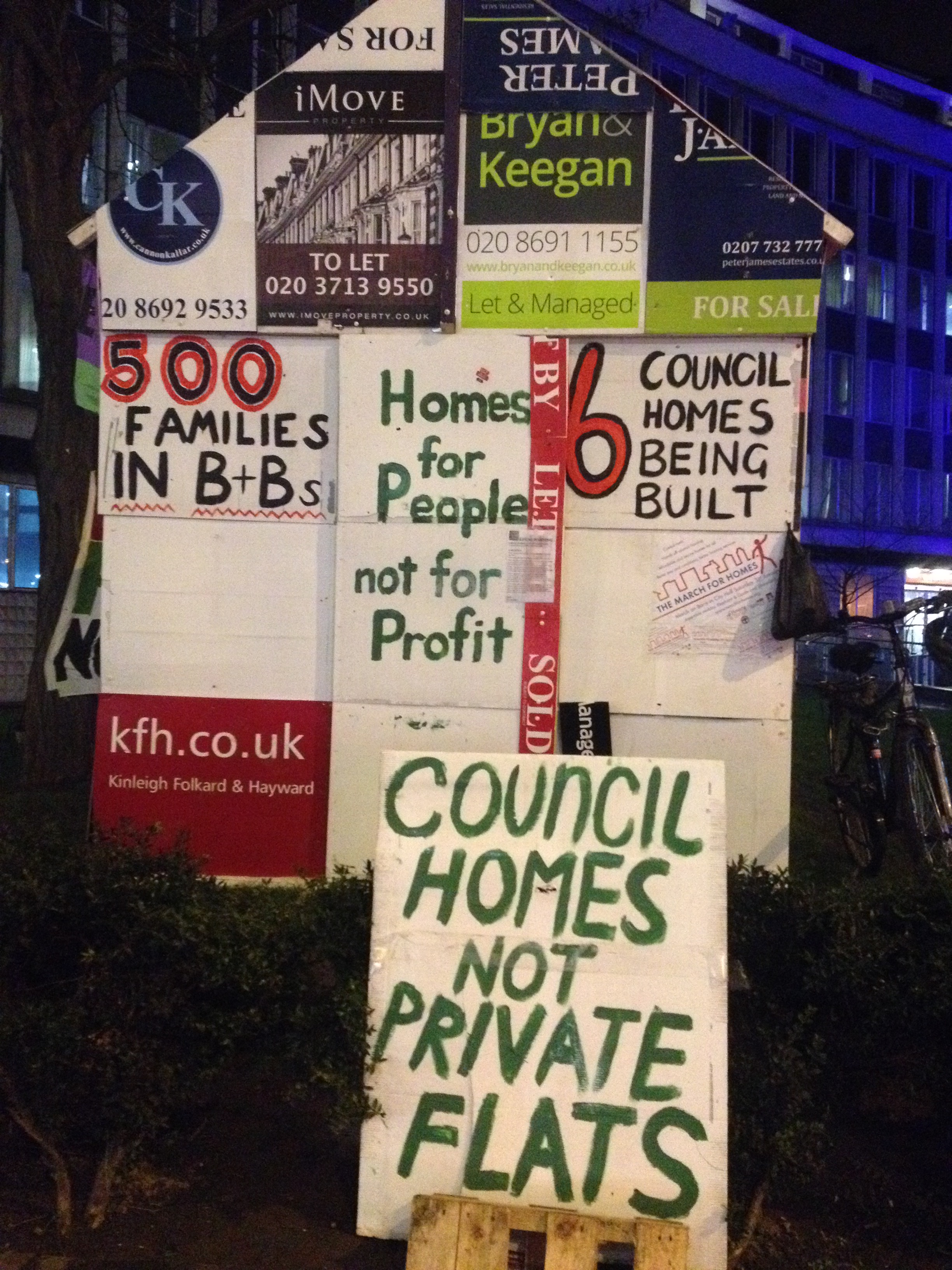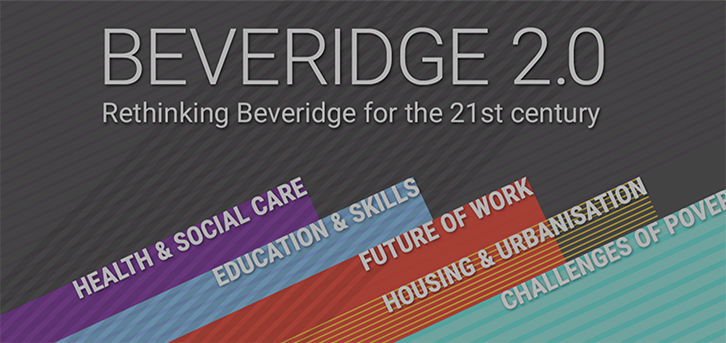First published by LSE International Development, this article by Dr Stephanie Levy looks at the impacts of the Severe Weather Emergency Protocol (SWEP) in place in the UK. SWEP leaves it to the discretion of councils to offer shelter to people experiencing homelessness on days of extreme weather events, such as when temperatures drop below zero, during heatwaves or storms. SWEP is considered a humanitarian duty but not a legal requirement, for local authorities to apply when and where they deem possible.
Through a personal account of serving food to people in need on a recent night of sub-zero temperatures, Stephanie Levy makes a powerful case for a system change that would obligate the UK government to provide care and shelter under life threatening circumstances.
We are covered in snow within 20 minutes of handing out food and tea from our table outside the tube station. The temperature has dropped so low that we can’t feel our fingers. The queue seems longer than ever, with guests continuing to show up for a good hour, some we haven’t seen in months. We serve bags and bags of food and yet some people still wait on the side, for leftovers.
Among the familiar faces in the queue is an elderly lady, shivering with cold, weighing less than my teenage daughter, wearing the same light cotton jacket I’ve seen on her for months, wet gloves so thin I can see her skin through them.
Then comes a girl in her 20s with a small dog. She asks if we can help her find shelter for the night. We call our colleague who deals with shelter accommodations and council services. After long minutes of trying, we find that nothing can be done that night. We tell this girl that there is nothing we can do to spare her the suffering of a night outside in -3 degrees, with her dog. What we find too difficult to bear for an hour, they will have to endure all night, knowing that the cold, like despair, causes exponential suffering, each hour worse than the previous one. And as we offer her another cup of tea, another piece of cake, we feel inadequate, powerless, disillusioned, frustrated.
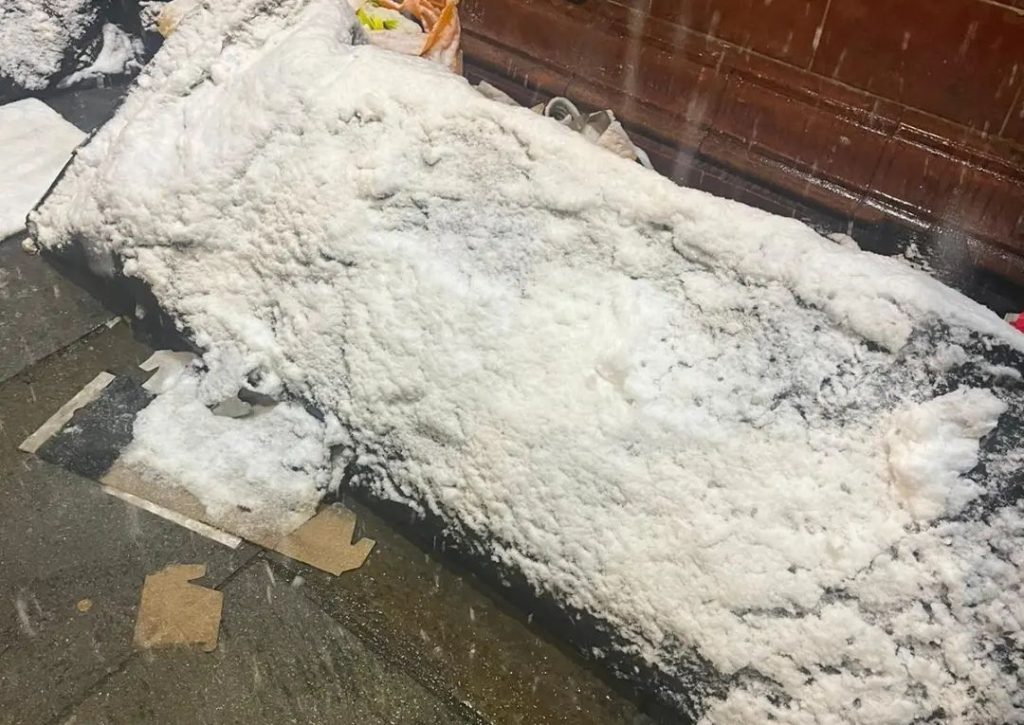 As I serve another young girl, I notice her bare legs, and soon, it becomes difficult for me to focus on anything else. She smiles and says she’d love anything with chocolate. She tells me how glad she is that my teammate has given her the solid pair of shoes she is now wearing. She seems so confident that I could have confused her for one of our volunteers, but she keeps looking at a few bags by the side of the road. Those are all her belongings, everything she possesses, and they are getting covered with snow. As we start chatting, I find out that with her bare legs, bulky shoes and many bags, she doesn’t know where she will spend the night. We have no more clothes to give her, no trousers to cover her legs. I turn away because I don’t want her to see that I am feeling overwhelmed at the thought of what she is about to experience tonight. My teammate whispers that I shouldn’t inflict this, too, on her – she shouldn’t see herself through my eyes. So, I go back and tell her the cold makes me teary.
As I serve another young girl, I notice her bare legs, and soon, it becomes difficult for me to focus on anything else. She smiles and says she’d love anything with chocolate. She tells me how glad she is that my teammate has given her the solid pair of shoes she is now wearing. She seems so confident that I could have confused her for one of our volunteers, but she keeps looking at a few bags by the side of the road. Those are all her belongings, everything she possesses, and they are getting covered with snow. As we start chatting, I find out that with her bare legs, bulky shoes and many bags, she doesn’t know where she will spend the night. We have no more clothes to give her, no trousers to cover her legs. I turn away because I don’t want her to see that I am feeling overwhelmed at the thought of what she is about to experience tonight. My teammate whispers that I shouldn’t inflict this, too, on her – she shouldn’t see herself through my eyes. So, I go back and tell her the cold makes me teary.
I ask her to wait for me until the end of the shift and ask the tube staff if she can stay in the station for warmth. They welcome her, they always do. I then go on a hunt for a sleeping bag or warm clothes. We have a multitude of group chats, and have, on nights like this, people ready, somewhere, always. It is 9:30pm by the time I bring her a sleeping bag, waterproof trousers, a sanitary kit and torch. I see her turn to wave at me once more as she leaves in the dark.
Human warmth
Three years ago, I joined a grassroots organisation, which supports people experiencing homelessness. We serve over 1,500 meals a week, across eight boroughs – hot drinks, clothes, shoes, toiletries and a lot of human warmth. All of us are volunteers; all of the donations we receive go to buy supplies. We are independent of local government or public services and receive no financial support to do what they are supposed to do: take care of the most vulnerable members of our society. An army of volunteers all around you, wherever you live, often very committed, sometimes extremely hard-working. Mostly silent and mostly invisible.
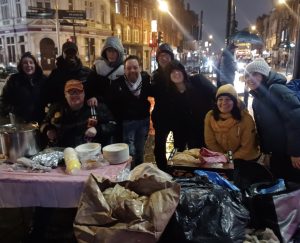 Four days a week, my teammates Rachel, Pete and I pick up unsold meals from fancy restaurants, organic coffee shops and high-end food stores in the wealthy part of our neighbourhood. Every week, we repurpose loads of perfectly fresh food, from organic salmon bagels to chocolate fondants and 3-layer cakes. Not only is most of the food we serve fancy, but it would all have ended up in landfills.
Four days a week, my teammates Rachel, Pete and I pick up unsold meals from fancy restaurants, organic coffee shops and high-end food stores in the wealthy part of our neighbourhood. Every week, we repurpose loads of perfectly fresh food, from organic salmon bagels to chocolate fondants and 3-layer cakes. Not only is most of the food we serve fancy, but it would all have ended up in landfills.
 Every week, our team gathers by the tube station, Phil brings everything needed for the hot drinks, Stephanie her home-made cakes and her luminous smile. Often, we are joined by occasional volunteers too. We serve our guests for up an hour with no break. It is a bit like working in a food truck at peak time, except our guests don’t pay. They get to choose what they want to eat, what they want to take away with them, and how they want their coffees prepared, which can include whipped cream, chocolate sauce and marshmallows.
Every week, our team gathers by the tube station, Phil brings everything needed for the hot drinks, Stephanie her home-made cakes and her luminous smile. Often, we are joined by occasional volunteers too. We serve our guests for up an hour with no break. It is a bit like working in a food truck at peak time, except our guests don’t pay. They get to choose what they want to eat, what they want to take away with them, and how they want their coffees prepared, which can include whipped cream, chocolate sauce and marshmallows.
Rain or shine, we put our serving gloves on and a welcoming face to ask our guests what they would ‘fancy eating tonight’. When a guest tells us that they would take whatever we’d give them, we respond that we don’t know what they like and offer again that they make that choice – how often do they get to ‘choose’ in their daily life?
With time, we get to know our regular guests, their stories, sometimes even their dreams for tomorrows that never come.
Some nights are joyful. Sometimes musicians play by the tube (this is Camden Town after all) and guests sing along with us to familiar pop songs. Sometimes we have good laughs. Every shift, a small group of guests gather a few meters away from the table, with their cups of coffee and tea, they tell each other about their week, sometimes they swap the food they have received, sometimes they laugh.
When our shifts end, we go back home to rest or cook, back to our partners, kids, familiar belongings and beds. Some of us keep the voices or the images in our heads, images of dirty hands, missing teeth, dilapidated shoes, threadbare jackets, oversize trousers. Images of dilated pupils or shaking bodies when it is cold outside or when our guests are so hungry that they can hardly wait to walk away from the table to bite into their food.
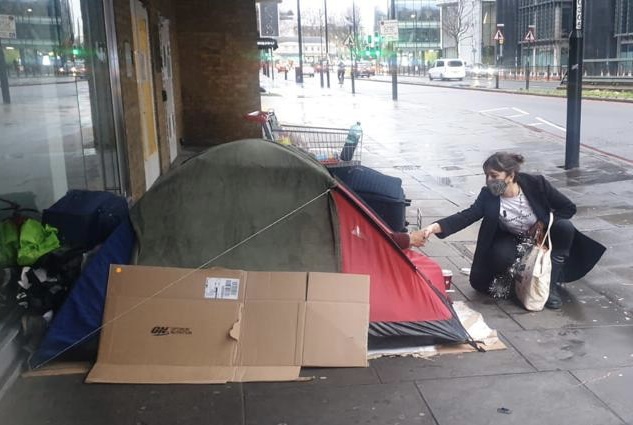 The above story is the account of a recent night of outreach, one of countless nights we have experienced. How many stories of human tragedy can each one of us tell, and how many more are ahead of us?
The above story is the account of a recent night of outreach, one of countless nights we have experienced. How many stories of human tragedy can each one of us tell, and how many more are ahead of us?
Offering shelter to everyone at all times might still be a difficult step for our society to take, given the (perceived) associated costs, not to mention the prejudice against those living in poverty. But when it is -3 degrees outside, not having shelter is a potential cause of death and a most certain cause of unbearable suffering. Why are our social services under no obligation to provide shelter to rough sleepers during severe weather events? At the very least, we can afford this.
If societies are judged by how they treat their most vulnerable, what does that young girl sleeping with her dog under the snow, say about ours?
The views expressed in this post are those of the author and in no way reflect those of the International Development LSE blog or the London School of Economics and Political Science.
Image 1: A sleeping bag next to our table. Image credit: Elodie Berland; Image 2: Credit: Rachel Lipsitz; Image 3: Credit: Laurent Pipitone; Image 4: Credit: Jon Glackin. Main image: A person sleeps on a bench beside a Banksy mural in Birmingham’s jewellery quarter via www.banksy.co.uk.


